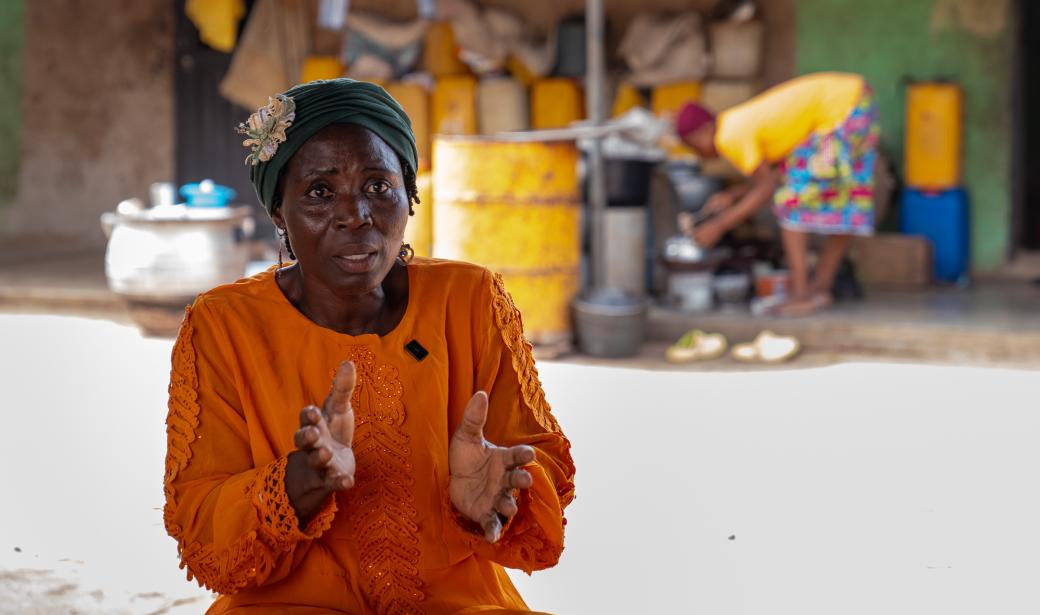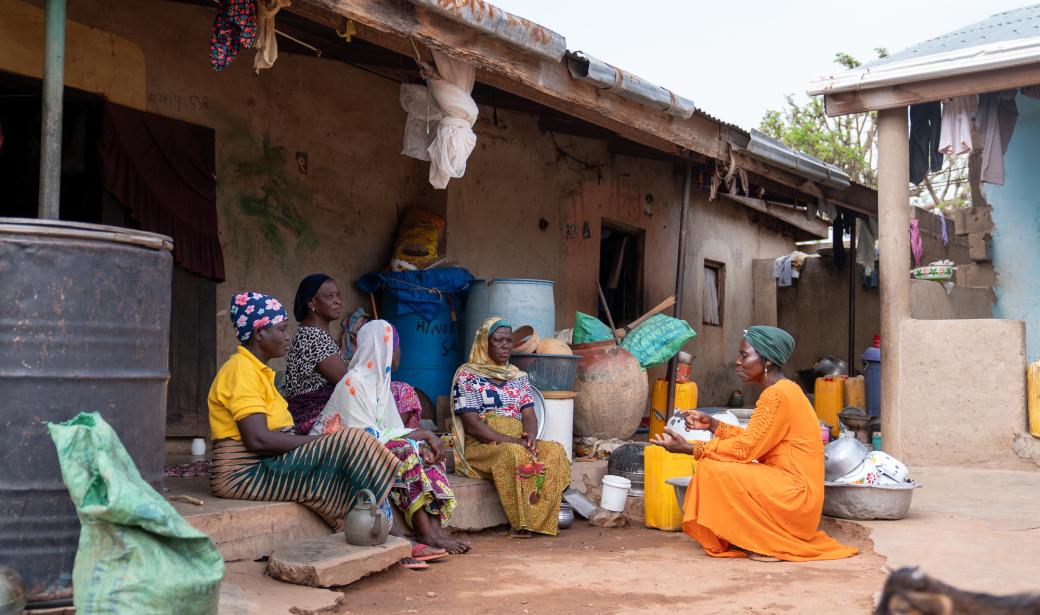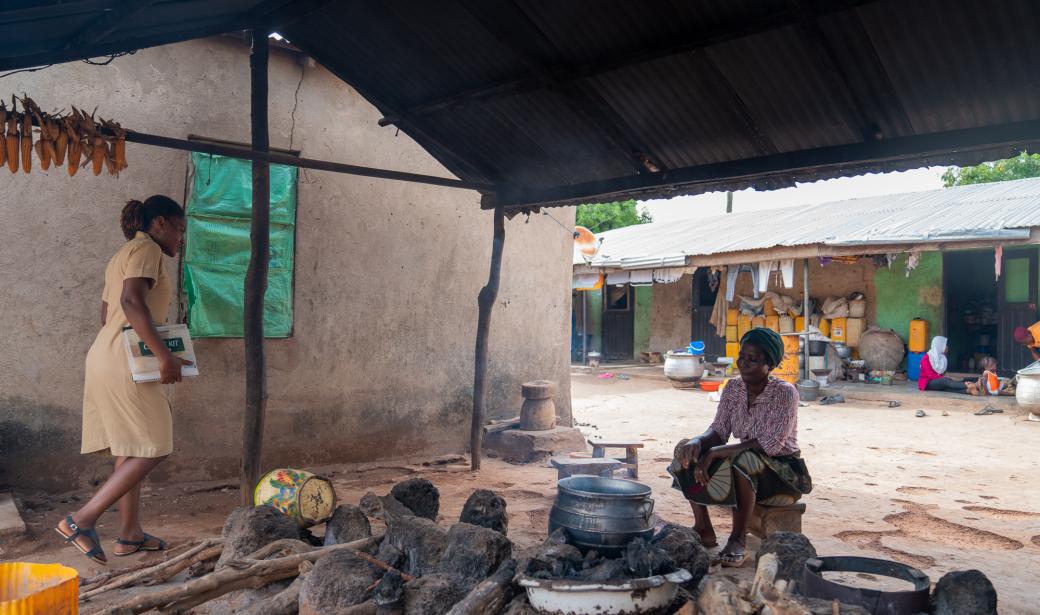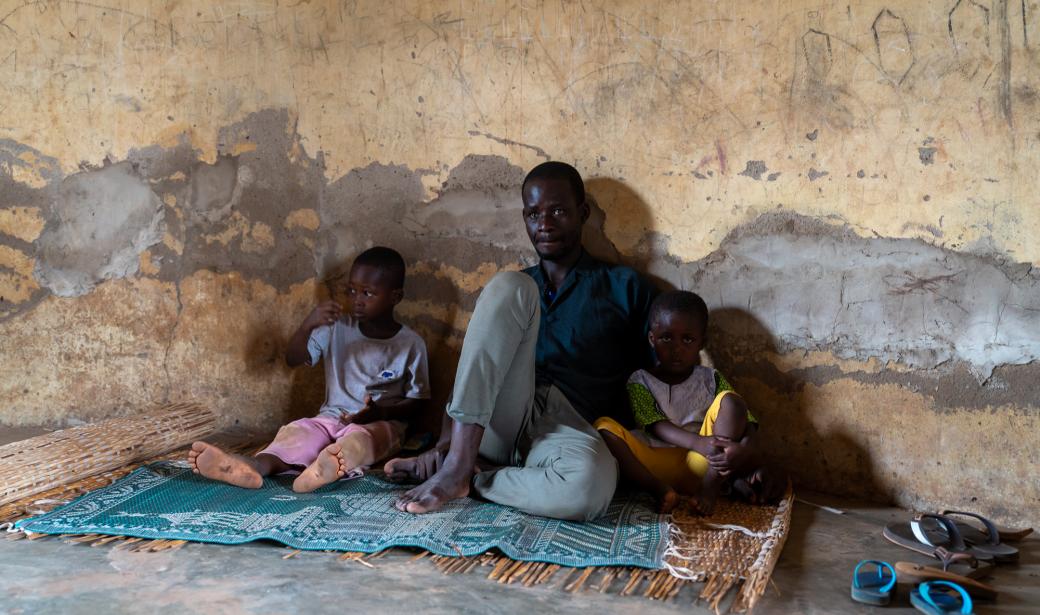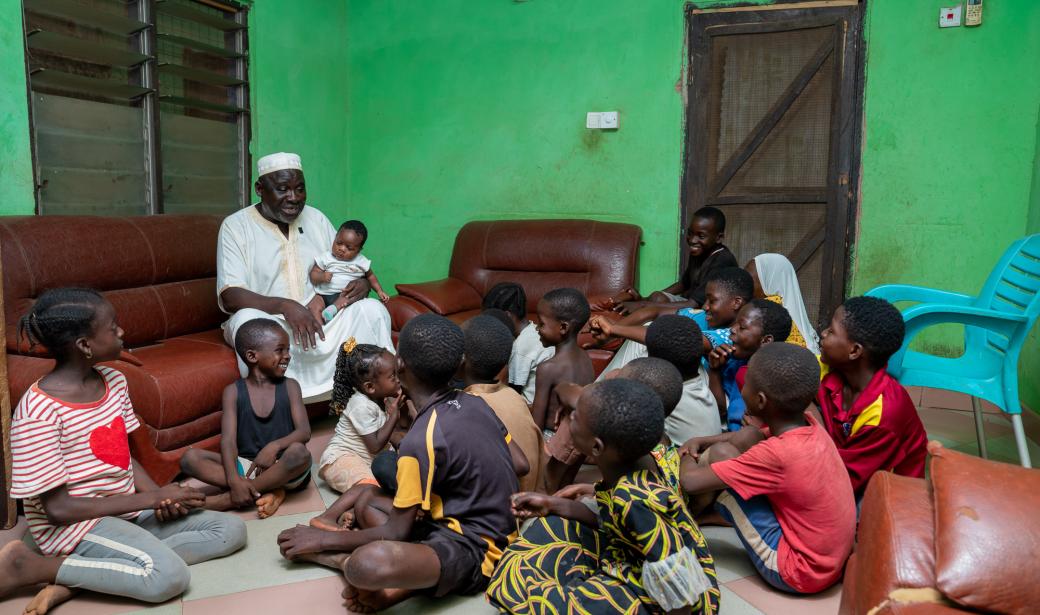“Every time I asked my husband about using a family planning method, he would say my job was to give birth, and his was to feed the family. I felt alone, scared, and tired—but I kept hoping he would listen someday”, Osman Wazifatu, mother of six, Mion District.
Osman Wazifatu lives in a rural community in the Mion District of Ghana’s Northern Region. At 34 years old, she has given birth to six children—none of them planned, and most spaced barely a year apart. With each pregnancy, her strength waned, and her anxiety grew. She knew she needed to limit childbirth, but convincing her husband, Osman, was a herculean task. Every attempt to discuss family planning with him was met with resistance. He believed her role was to bear children, and he saw no reason to interfere with what he considered God’s will for couples to procreate to fill the earth. For years, Wazifatu battled silently torn between her deteriorating health and the cultural expectations placed upon her.
In many communities across northern Ghana, conversations around family planning are not just taboo—they can be a subject of conflict and marital disharmony. Deeply rooted cultural norms, traditions, and religious beliefs often discourage open dialogue about reproductive choices, especially among women. In these communities, having many children is seen as a blessing, attempts to limit or space births are often viewed as interference with divine will and there is a stigma associated with women who are seen patronising family planning services.
For women like Wazifatu, the burden is twofold. Not only do they carry the physical weight of repeated pregnancies with little spacing, they also carry the emotional and psychological toll of not having autonomy over their reproductive health.
But change—slow, careful, and courageous—is beginning to take root.
For women like Wazifatu, the burden is twofold. Not only do they carry the physical weight of repeated pregnancies with little spacing, they also carry the emotional and psychological toll of not having autonomy over their reproductive health.
But change—slow, careful, and courageous—is beginning to take root.
Thanks to the Health Systems Strengthening for Universal Health Coverage (HSS4UHC) project—led by Ghana Health Service and facilitated by WHO Ghana with support from the UK Foreign, Commonwealth and Development Office—efforts are underway to close the family planning gap in underserved areas like Northern Ghana. With the project support, 1510 midwives and community health nurses across six regions have been trained in the provision of Long-Acting Reversible Contraceptives (LARCs) through a hybrid model that combined e-learning with practical training and clinical session in the insertion and removal of intrauterine devices and subdermal contraceptive implants.
One of the Community Health Nurses trained through this initiative is Rehab Kawara Kasela, who works at the Sang Health Centre. She met Wazifatu during a routine antenatal visit—Wazifatu was once again pregnant, exhausted, and anxious.
“Her health was at risk since it was her 6th pregnancy. I had just completed my LARC training, and I knew I had to do more than just offer the method—I needed to bring her husband into the conversation”, Rehab recalls.
One of the Community Health Nurses trained through this initiative is Rehab Kawara Kasela, who works at the Sang Health Centre. She met Wazifatu during a routine antenatal visit—Wazifatu was once again pregnant, exhausted, and anxious.
“Her health was at risk since it was her 6th pregnancy. I had just completed my LARC training, and I knew I had to do more than just offer the method—I needed to bring her husband into the conversation”, Rehab recalls.
Rehab invited Mohammed Adams, Wazifatu’s husband, for a counselling session. At first, he was defensive. But through multiple sessions, Latifa helped him see the health, emotional and financial benefits he and his family stand to gain from practicing family planning.
“I initially agreed for her to get a 3 -month injectable contraceptive method just to try and when I realized how it allowed us to enjoy intimacy without fear of pregnancy, the financial relief I felt and how my wife became happy, I agreed to extend it. Now, she’s on a 3-year contraceptive implant. I only wish we had started earlier”, Adams said.
“I initially agreed for her to get a 3 -month injectable contraceptive method just to try and when I realized how it allowed us to enjoy intimacy without fear of pregnancy, the financial relief I felt and how my wife became happy, I agreed to extend it. Now, she’s on a 3-year contraceptive implant. I only wish we had started earlier”, Adams said.
In Tamale, the impact of the training is being amplified by unexpected champions—like Alhaji Alhassan, a respected Islamic cleric.
“I have two wives, and they’re both on long-acting contraception after receiving counselling from our community health nurse. Islam encourages care for one’s family. If a man cannot provide adequately, how can he fulfill his duty? I am now preaching openly about family planning and contraceptive use at my mosque. It’s about responsibility, not rebellion against faith”, he said.
“I have two wives, and they’re both on long-acting contraception after receiving counselling from our community health nurse. Islam encourages care for one’s family. If a man cannot provide adequately, how can he fulfill his duty? I am now preaching openly about family planning and contraceptive use at my mosque. It’s about responsibility, not rebellion against faith”, he said.
These stories are not isolated. They reflect a growing shift—where trained healthcare workers, empowered by evidence and equipped with empathy, are changing the narrative one family at a time. The HSS4UHC project is proving that with the right support, even the most entrenched beliefs can evolve when communities are engaged with respect and truth.
Thanks to the growing number of trained community health nurses and midwives, the barriers of distance and lack of skilled personnel are beginning to break down. Women no longer have to travel miles away or hide in fear of judgment—family planning services are now at their doorsteps, offered by trusted faces within their own communities. It's a powerful reminder that improving access to healthcare is, key to transforming health systems and empowering every family to make informed choices that ensure health for all.
For Additional Information or to Request Interviews, Please contact:
Abdul-Lahie Abdul-Rahim Naa
Communications Officer
WHO Ghana Country Office
Email: abdullahiea@who.int
Tel: +233 20 196 2393
Thanks to the growing number of trained community health nurses and midwives, the barriers of distance and lack of skilled personnel are beginning to break down. Women no longer have to travel miles away or hide in fear of judgment—family planning services are now at their doorsteps, offered by trusted faces within their own communities. It's a powerful reminder that improving access to healthcare is, key to transforming health systems and empowering every family to make informed choices that ensure health for all.
For Additional Information or to Request Interviews, Please contact:
Abdul-Lahie Abdul-Rahim Naa
Communications Officer
WHO Ghana Country Office
Email: abdullahiea@who.int
Tel: +233 20 196 2393



